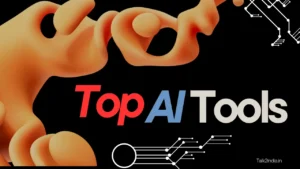Artificial Intelligence in Healthcare Advancements

The healthcare industry is undergoing a radical transformation propelled by Artificial Intelligence (AI). AI is automating tedious duties for clinicians, allowing them to dedicate more energy to delivering patient care. Moreover, AI intersects with healthcare realms by providing precise and swift diagnosis and treatments, delivering more effective outcomes. This article delves into the current state of AI in healthcare, analyzing its potential to revolutionize the sector.
AI in Healthcare: Benefits and Challenges
AI possesses the potential to drastically boost patient welfare and reduce healthcare costs. By leveraging it, medical diagnosis accuracy can be improved and medical care can be made more expeditious. AI can also delve into vast datasets to uncover patterns that may elude human recognition. Moreover, AI can create a more personalized treatment plan for patients and assist clinicians in recognizing and attending to high-risk patients.
Despite the potential advantages that accompany AI in healthcare, there remain significant hurdles that must be navigated before its widespread adoption. The lack of faith in Artificial Intelligence (AI) models is a pressing concern, as they are often viewed as inscrutable and intricate, making it difficult for healthcare professionals and other stakeholders to accept their outcomes. This raises further ethical questions; who is liable for the decisions rendered by AI systems?
Also Read: Use Chat GPT on WhatsApp
AI for Diagnostics and Treatment
AI technology is being employed to expedite diagnostics and optimize treatment decisions. For instance, AI-assisted diagnosis can help clinicians detect diseases more promptly and accurately. Additionally, AI can identify anomalies in medical images, such as tumors or other abnormalities. Moreover, AI-powered decision support systems grant clinicians access to enhanced knowledge when choosing treatments and pharmaceuticals.
AI-powered robotics are already being used in surgery. Robots boast higher precision and accuracy than humans, yielding superior results. Furthermore, AI-powered robots are capable of reducing the duration of operations, significantly decreasing costs.
In addition to diagnostics and treatment, AI is being used to monitor patients. AI-powered wearables can monitor a patient’s vital signs and provide real-time information to clinicians. This data can be used to identify potential problems or complications earlier, leading to more timely and effective interventions.
Also Read: Unlocking the Potential of Meta AI
Conclusion
AI holds the power to revolutionize healthcare delivery and drastically enhance patient outcomes. Through automating tedious tasks and supplying clinicians with more precise and timely data, AI is revolutionizing the industry. Despite this, there are still hiccups to be addressed before widespread adoption of AI in healthcare. However, with a solid infrastructure and complementary policies, AI can revolutionize healthcare and usher in improved patient outcomes.
FAQs:
What are the potential benefits of AI in healthcare?
AI has the potential to revolutionize patient care, through more accurate diagnoses, expedited medical delivery, tailored treatments, and proactive risk management. By doing so, healthcare costs can be drastically reduced while outcomes are dramatically improved.
What are some of the current challenges with AI in healthcare?
Presently, trust in the technology is limited, ethical implications must be taken into account, and data infrastructure requires improvement.
What are some examples of AI being used in healthcare?
AI is already being used to assist with diagnostics and treatment decisions, detect anomalies in medical images, and monitor patients. AI-powered robotics are also being used in surgery.





